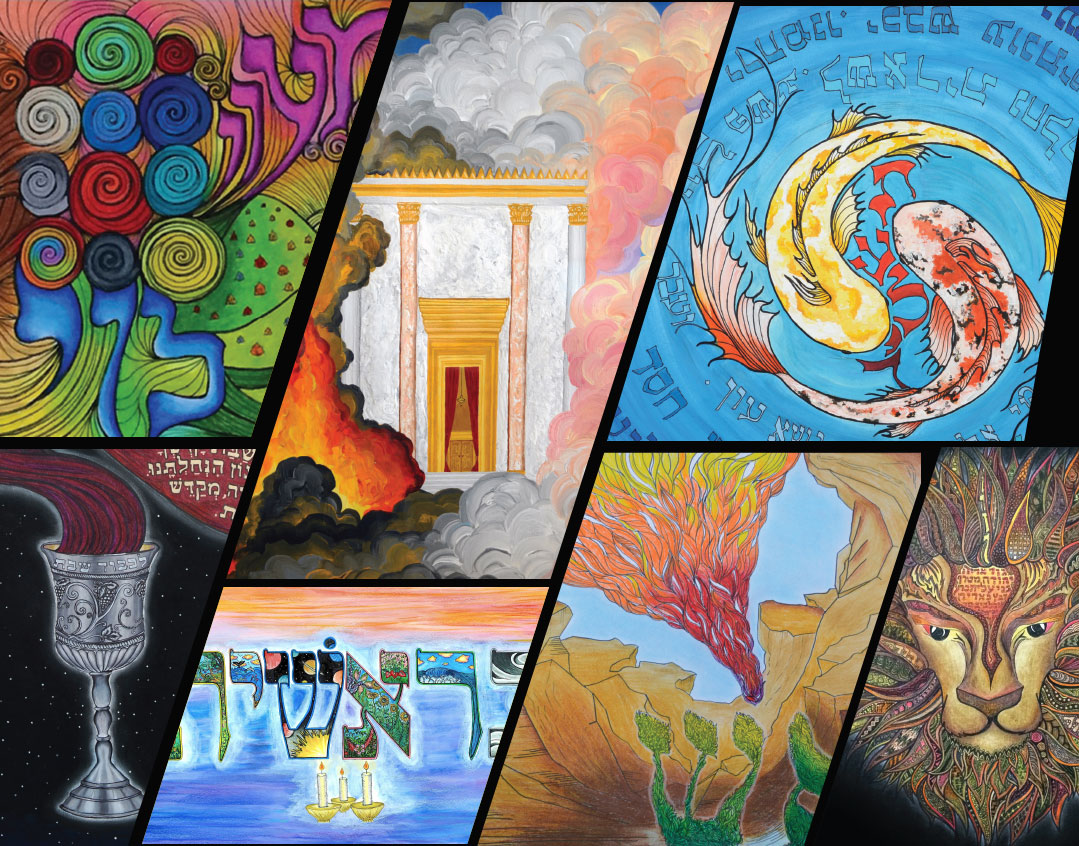Drawing in the Blanks


B
rooke Foster was a sophomore at Arizona State University studying for an art degree when she was stopped by a woman handing out pamphlets for Jewish Arizonans on Campus (JAC), a kiruv organization.
“Are you Jewish?” the woman asked.
“I’m half Jewish,” Brooke replied.
The woman smiled and probed further. “Which half?”
Though Brooke was raised by a Jewish mother, she knew almost nothing about Judaism. “The most Jewish education I received was a conversation here or there about the Holocaust,” Brooke shares. “When my mother was pregnant with me, she and my father, a Christian, went to a pastor and said, ‘What should we do with our daughter? How should we raise her?’ The pastor replied, ‘The Jews will think she’s Jewish. Send her to temple.’ But for whatever reason, they decided not to. So I grew up in church instead.”
Every Sunday, Brooke went to services at a Presbyterian church in Irvine, California. She was also sent to the church’s youth group on Wednesdays, which included social events and Bible study. “Around the age of 16, I hit a wall with church,” Brooke says. “I started asking questions about what we were learning, but no one would answer me.” When, for instance, she asked her teacher a question about the contradictions in the accounts of their savior’s birth, she was kicked out of class.
“Instead of answering my questions, the teachers would say, ‘Come back in five minutes when you calm down.’ But I wasn’t angry — I just wanted an explanation. Their approach was, ‘Don’t ask, just believe. G-d loves you.’ But it wasn’t enough for me.”
Socially, church also posed challenges. “I never felt like I fit in. Maybe it was because I didn’t have great friends. Maybe it was because everyone knew I was Jewish — I was open about the fact that my mom was Jewish, and they knew my mother never went to church. Even though my mom didn’t do anything Jewish in practice — she was raised reform and had no Jewish education — she wouldn’t come unless we were in a performance,” Brooke says.
“I went to church regularly, but people never let me forget that I was Jewish. I remember they once served bagels at church group, and when I took one, someone remarked, ‘Oh, the Jew wants a bagel.’”
When Brooke told her father that she wasn’t going to church anymore, he was devastated. “We sat talking in the car for an hour. He was worried about me going to hell. But I was adamant — I told him that if he sent me, I would just leave. So he ultimately let me stop going.”
After that, Brooke became agnostic. “I never even considered Judaism as an option because I thought being Jewish just meant you don’t believe in the Christian savior. Growing up, the most Jewish thing in my life was my grandparents, my mom’s parents. When they’d visit from New York, they’d tell me stories about being Jewish — like when my grandfather was called ‘Jew boy’ while serving in the Navy. They believed in G-d but never talked about any Jewish practices. They didn’t even give Chanukah gifts — everyone in my mom’s reform temple growing up had a tree in December. Their whole identity was being socially Jewish.
“But there was one thing my grandparents and mother were very gung-ho to tell me about: the Holocaust. I heard story after story. I saw every Holocaust movie. The message I got was, ‘You have Jewish blood. You are a Jewish person. The Holocaust is relevant.’ But Judaism? I never heard about it.”
(Excerpted from Family First, Issue 635)
Oops! We could not locate your form.













